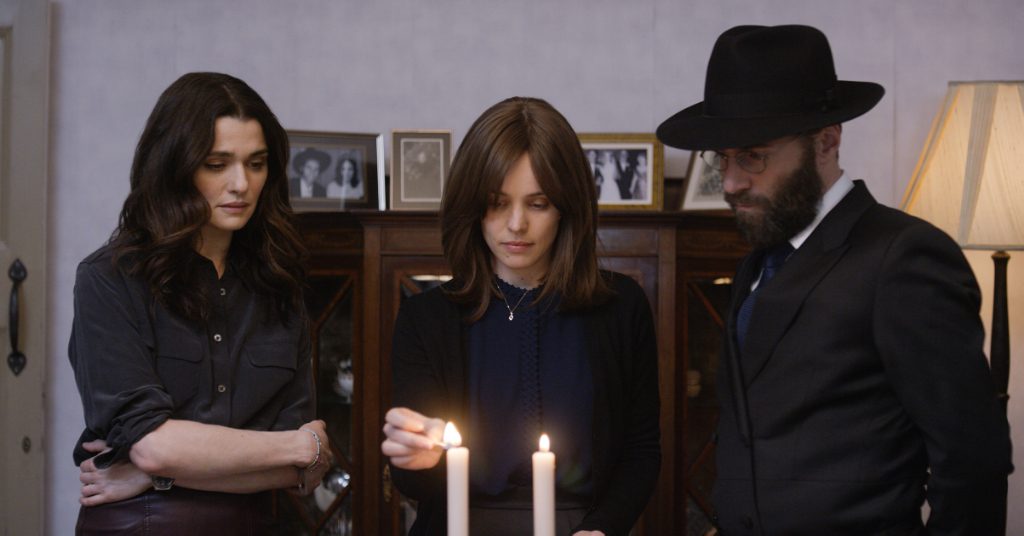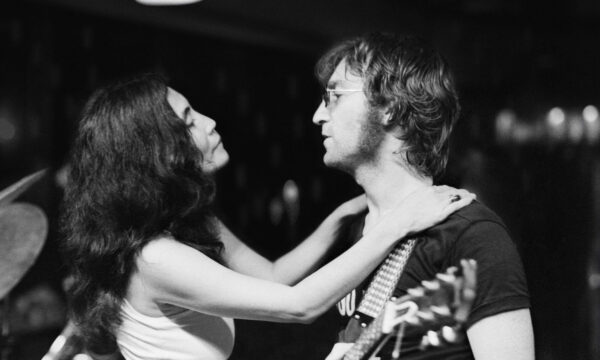Disobedience

“Is Man an afterthought,” asks the Rabbi as Disobedience begins, “or God’s crowning achievement?” This opening monologue sets the tone for a film that continues to explore with artistic delicacy themes that are biblical in scale: free will, obedience, sexuality. And yet, with a North London Jewish community as his lens, director Sebastián Lelio succeeds in conveying an intensely personal narrative.
Ronit (Rachel Weisz) is called back from New York to her native London after years of self-exile when she receives news that her estranged father has died. On returning to her old home, she is disconcerted to discover how much has changed – her best friends Esti (Rachel McAdams) and Dovid Kuperman (Alessandro Nivola) are married, and he a leading figure in the Synagogue – and moreover how some age-old attitudes never do. While Dovid is more willing than most to extend the hand of friendship to his old friend, the warmth between the two women is slower to revive. When it does, however, a forbidden love returns with new fervour.
Disobedience is stifling, and the fact that it makes for discomforting viewing is its stylistic achievement. Lelio goes beyond telling a story, and creates a distinct mood through claustrophobic camerawork, and the muted palette of everything from the costumes to the grey London setting. It is a mood of oppression; that which Ronit feels as she is reabsorbed into this community with its expectations and codes, and into which the audience is adopted and confined as the drama unfolds within the four walls of the Kupermans’ home.
The film ticks a number of boxes, and seems keen to be recognised as pushing boundaries. There is a vehement defence of a woman’s decision not to marry. Tick. A lesbian sex scene. Tick. Nevertheless, it does so elegantly, and the interplay of dialogue and silence works hard, with little in the way of action or music to distract from the essence of the drama.
Weisz is quietly impressive as Ronit, but it is Nivola who gives the standout performance. Caught between religious duty and his love as husband and friend to Esti and Ronit, the skill with which he navigates this conflict is what affords the film’s criticism of dogmatic religion its nuance. For, ultimately, it is Dovid’s faith that allows him to explore the possibility that morality may lie beyond the realms of doctrine.
Victoria Ferguson
Disobedience is released in select cinemas and on demand on 30th November 2018.
Watch the trailer for Disobedience here:

























Facebook
Twitter
Instagram
YouTube
RSS